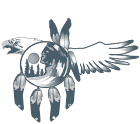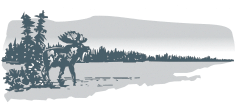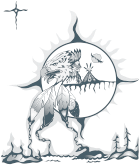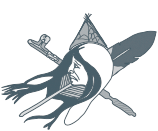
Keeping the Land
uVQnBSuPy Ro
“After the Creator finished making everything on earth, he decided to create human beings. He took pieces of mud from the four directions and made them into the shape of a man. Then he took a miigis [cowrie] shell, blew his breath into it and placed it in the man he had made. The man came to life. The Creator gently took this man in his hands and lowered him onto the earth and said, “This is my beautiful garden and I am asking you to take care of it.”
Elders Abel Bruce and Albert Bittern
To Aninshinaabeg, Pimachiowin Aki is not wilderness. It is home. Anishinaabeg were placed on the land by the Creator and have a sacred responsibility to care for it, guided by principles of Ji-ganawendamang Gidakiiminaan (Keeping the Land):
Honouring the Creator’s gifts
The Creator provided every material resource needed to live a healthy and prosperous life in Pimachiowin Aki, including the sun, nutritious food and clean water, and the materials needed year-round for traveling across the land and building shelter. The Creator gave these gifts to ensure the survival of Anishinaabeg. Anishinaabeg honour this by using the land in a manner that ensures the continuity of the Creator’s gifts.
Respectful behaviour toward other beings
Anishinaabeg show respect for other animals that have given up their lives by ensuring that no part of a harvested animal is wasted. Respect for harvested plants and animals is also shown by gibimi-giiwewatoon (giving something back to the land) after harvesting. For example:
- Returning the bones of beaver and fish to the water while saying a prayer to acknowledge: You will swim these waters again
- Hanging duck wings or moose beards in trees to respect the spirit of the harvested animals
- Offering tobacco to show thankfulness for harvests of plants, especially medicines — for harvests of medicines, tobacco is given to the frog, which is associated with the control of medicinal plants and knowledge of their potencies
- Leaving something of value at offering sites to show respect for spirit beings that control the weather or how/when animals are made available for Anishinaabeg to harvest — such spirit beings are known as the Creator’s helpers
We don’t laugh at or tease any animals. We hold them with much respect because it is not proper in our culture to tease animals, whether they are large or small. They will hear you when you don’t respect them and they will come after you, get even with you.
Anishinaabe Elder, in translation
Respectful relationships with people
Sharing land and resources is an important way to build good relationships and help people pursue a good life.
The practice of ji-gichi-inenimidiyang (maintaining respectful relationships with other people) directs Anishinaabeg to maintain good relations with all people, since all people were created equally. Partnerships and alliances with Anishinaabeg and non-Anishinaabeg from other regions are cherished and maintained as part of mino-bimaadizi (the pursuit of a good life).
When someone killed a moose, they would think about the whole community. They would try to give every person some meat, even if it meant to cut one shoulder into many pieces, just to make sure every person had something.
Anishinaabe Elder, in translation
 Donate
Donate 



